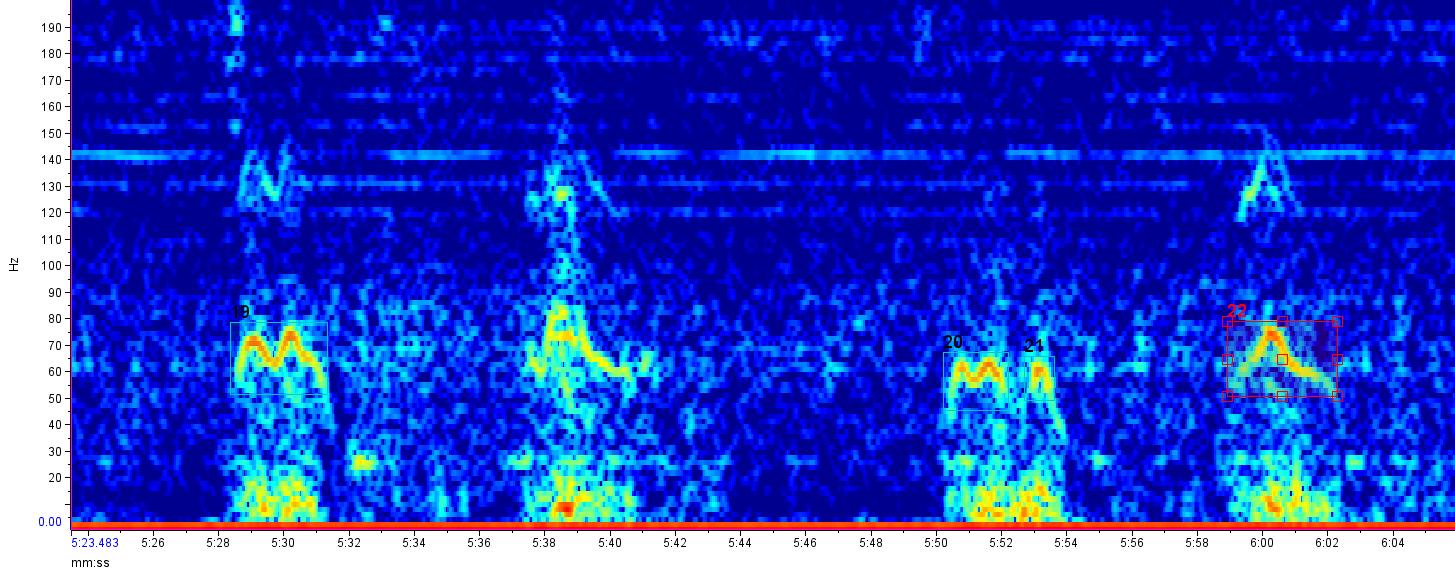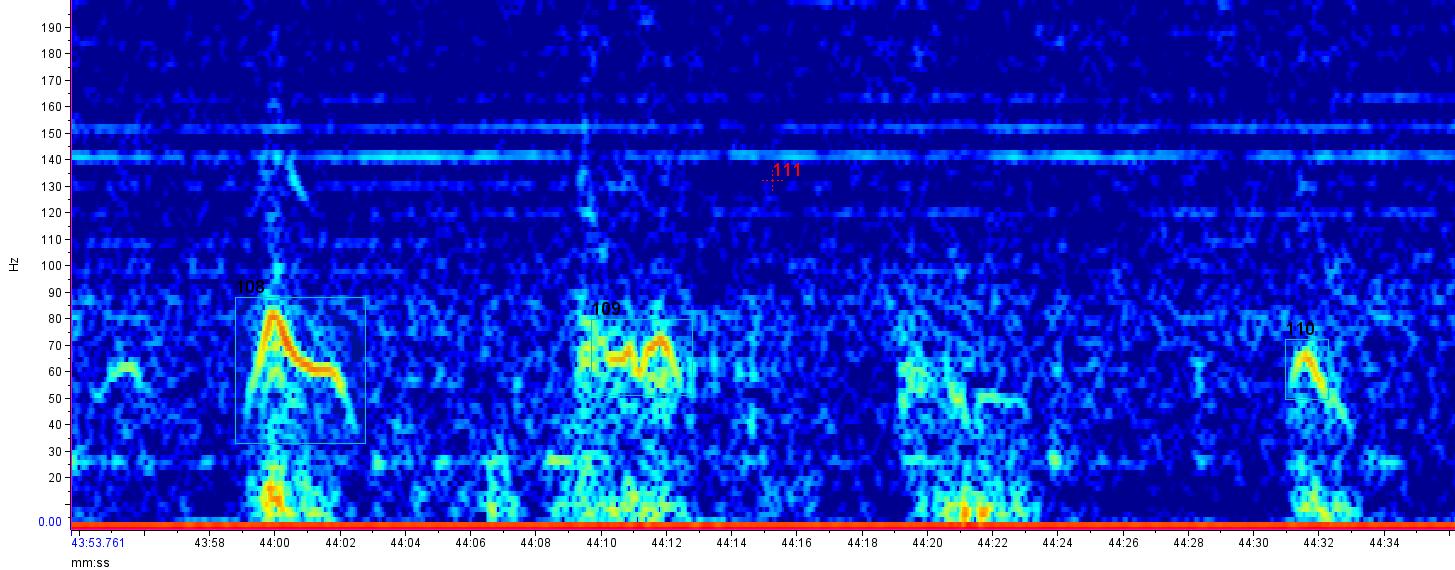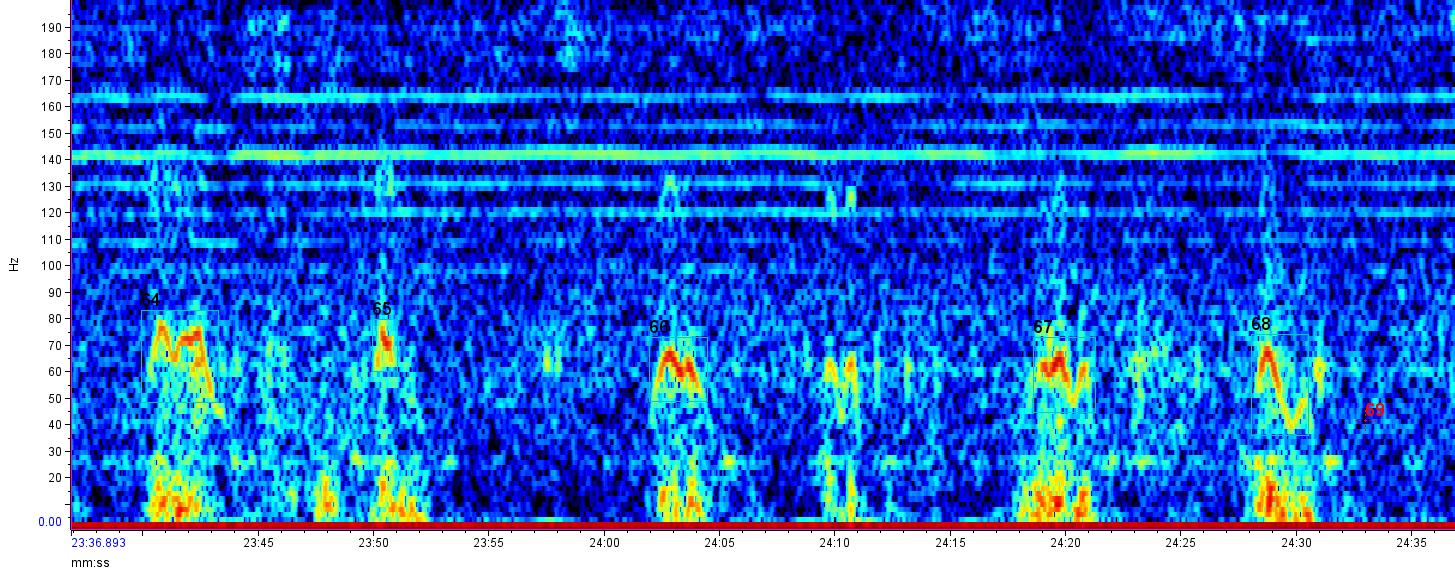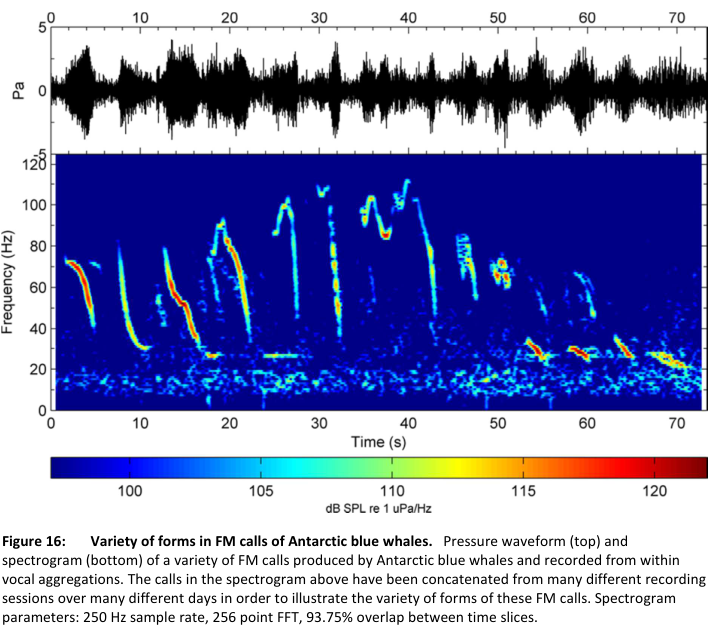Greetings Bioacoustics Community! I am looking for a bit of input regarding a set of low-frequency variable calls that are likely of baleen whale origin. The data were collected in April of 2023 off the coast of Oregon over a period of several hours during which the frequency-modulated calls repeatedly occurred. Most of the calls are within a 30 - 90 Hz bandwidth, and vary in duration from 0.9 seconds to approximately 3 seconds (though several were slightly longer up to 4.3 seconds). I am aware the frequency modulated calls can be a shared vocal type among baleen whales, but the nature of some of these "m-shaped" calls are very distinct. There are NO audible co-occurring humpback vocalizations and no other species detected after the end of this set of calls. Any thoughts on what this Pac NW species may be? I cannot at this time provide audio files due being currently restricted but can add these at a later data when cleared.
Image Description: Spectrogram of low-frequency (0-200 Hz) bandwidth with several examples of calls within annotation boxes. The spectrogram parameters include Hann window, 256 FFT, and 90 percent overlap. Files have a 500 Hz sampling rate.



